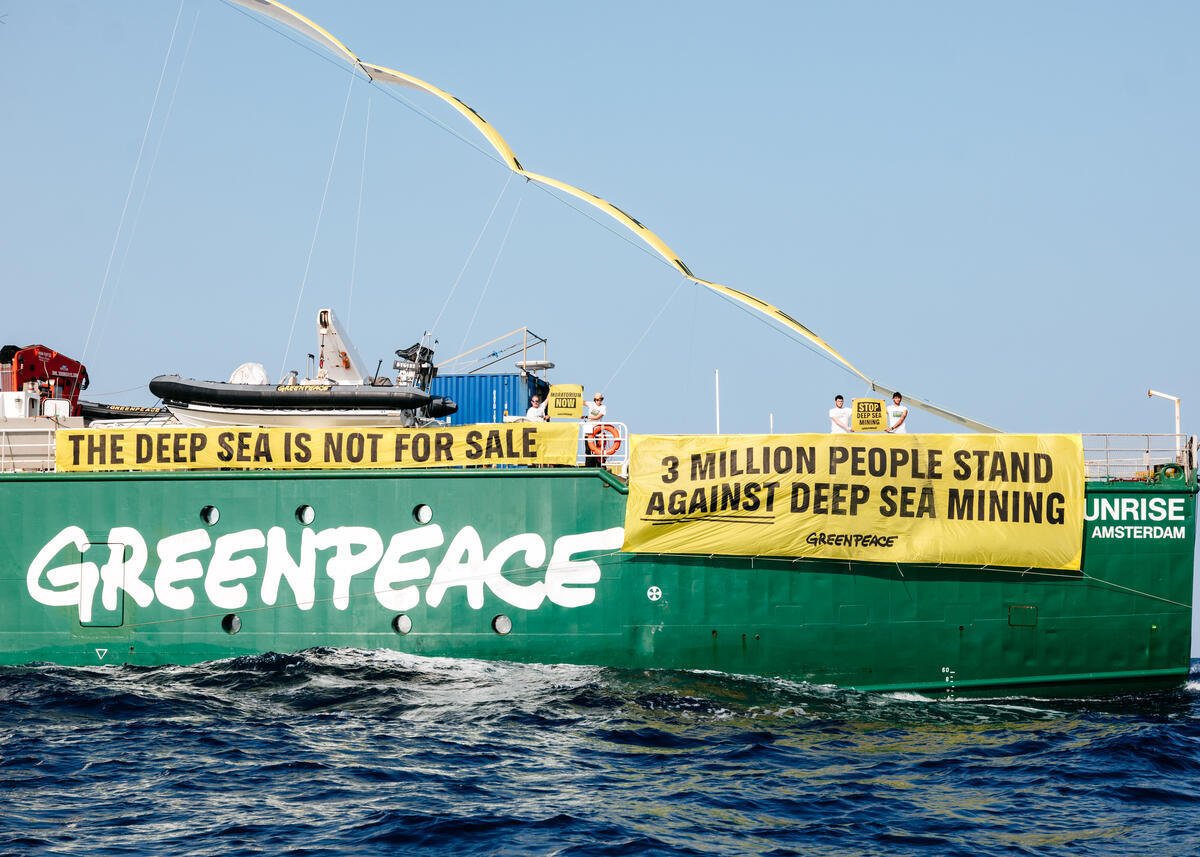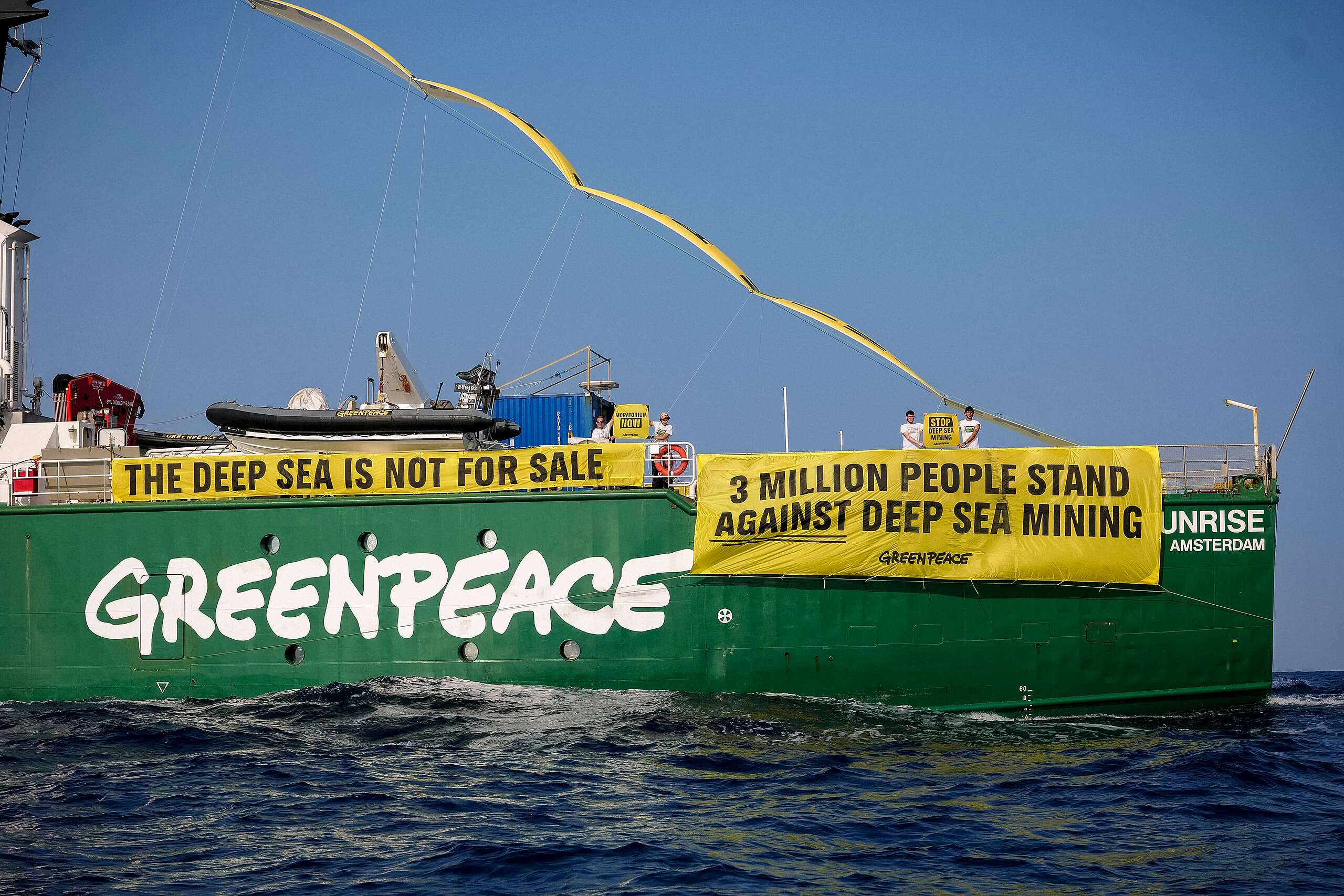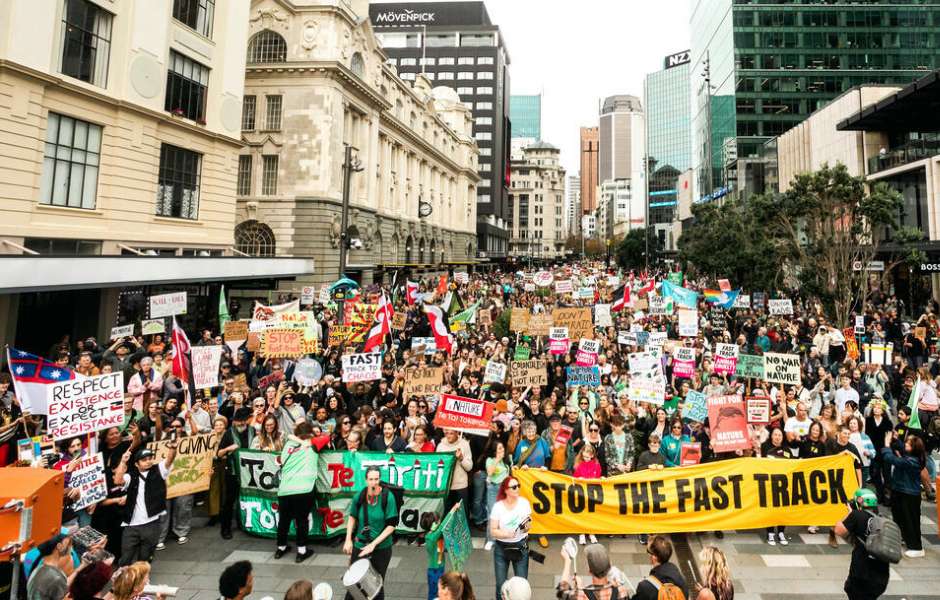Last week, a bunch of us from the Greenpeace team joined up with our friends from Ngāti Ruanui, bought a few shares and flew over to Sydney to the offices of Manuka Resources, the owner of Trans-Tasman Resources. Our objective was to attend their Annual General Meeting because we had an important message to deliver to our fellow shareholders.
Our message was simple, and we had it printed on banners and t-shirts:
NO SEABED MINING
Although it was a simple message, we felt like we needed to deliver it in person because, for over a decade, the mining company has refused to listen.
What happened
Trans-Tasman Resources (TTR), a wholly owned subsidiary of Australian mining company Manuka Resources, has been trying to push ahead with a terrible project to mine 50 million tonnes of sand from the seabed per year of the Taranaki Bight for 35 years. Despite facing opposition from the very start, and despite being rejected by the courts due to their repeated inability to comply with the relevant environmental regulations, TTR has disregarded the wishes of the people that will be most affected by their intended seabed mining operation.
So we decided to communicate directly to them and their shareholders during their AGM. We wrote a friendly letter for the shareholders, which we put in an envelope along with a gift “Stop Seabed Mining” sticker.
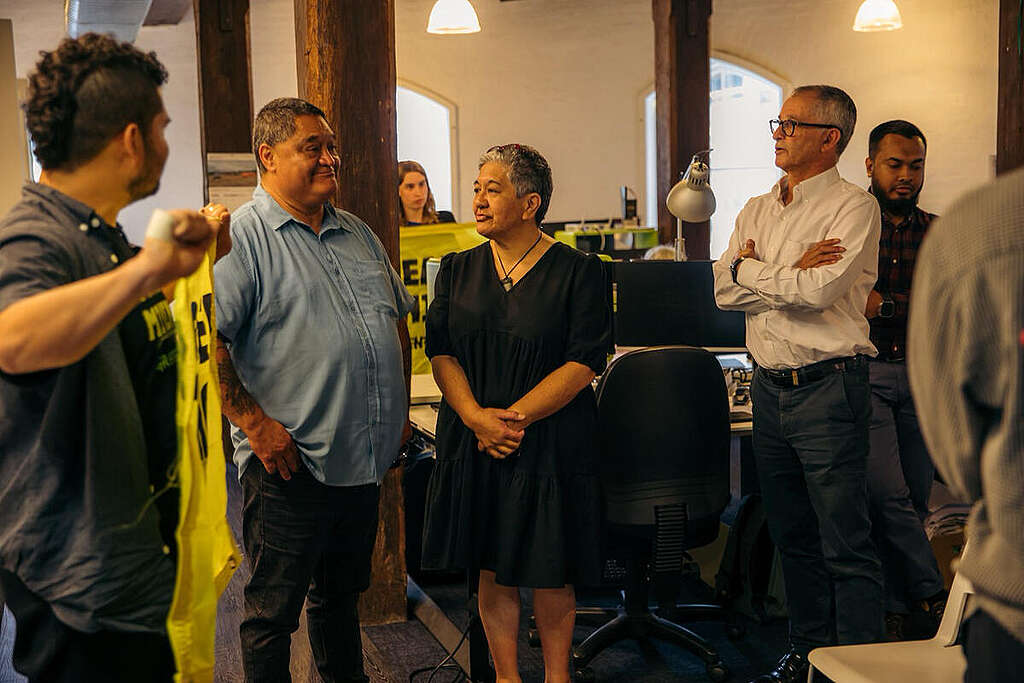
I sat next to Rukutai and Peeti, representatives from Ngāti Ruanui who travelled over a thousand kilometres from Taranaki to Sydney, while we listened to the chairman starting proceedings with a land acknowledgement to the aboriginal Gadigal people. I could not help but notice how ironic, performative and hollow this acknowledgement felt, coming from the representative of a company that has demonstrated they have no real interest in engaging with the concerns of indigenous people of the lands where they intend to carry out their activities. What they are proposing is indeed a modern form of colonial extraction.
After a few minutes, we decided the time had come to deliver our message. I sent out a text to activists outside who walked into the office holding printed signs that showed the coast of Taranaki, the precious pygmy whales that live in the area, and the local children holding signs outside an EPA hearing where TTR’s plans were previously rejected. By this point we vastly outnumbered the shareholders at the meeting.
Rukutai stood up and greeted the gathered people. He stated his case for opposing the mining project that threatens to ravage his home, he reminded them how Ngāti Ruanui have taken their case to court three times, and won all three of them. He spoke with mana and confidence while I stood next to him and the company shareholders, perhaps for the first time, were confronted with someone directly affected by the decisions they take from their offices. This was the moment where the people they usually see as little more lines on a spreadsheet became real to them.
We were asked to leave, and we did so peacefully, once we were satisfied that our message was clear enough. We took some photos to document our activity and left after highlighting how this issue is so deeply connected to the protests supporting Te Tiriti o Waitangi in Aotearoa.
To finish off the day, and as a celebration of sorts, we went to the Barangaroo Reserve in Sydney Harbour and inflated a large pink octopus. We took some photos together as a sudden downpour of rain fell over us but couldn’t dampen our spirits. It was a joyful moment.
Thoughts after all was done
I am proud of being a part of this activity, and grateful for the support we have received from all kinds of people in New Zealand and beyond. Lots of us feel strongly about the need to protect maritime environments for the future. Many have not only signed our petition, but also sent their own messages to the leaders of these companies, telling them to give up their reckless plans to mine the seabed of the South Taranaki Bight. So many in fact that Manuka Resources sent us a cease and desist notice from their lawyers! It shows that together, we’re being effective. We won’t back down.
These companies, and the politicians supporting their projects, are stuck in a worldview from generations past. They see endless exploitation of the world around us as the best way to achieve economic growth, ignoring that the environmental price for these activities will be paid by our descendants. In fact, the bill is already coming due now. Communities around the world are already feeling the price coming for their livelihoods and homes.
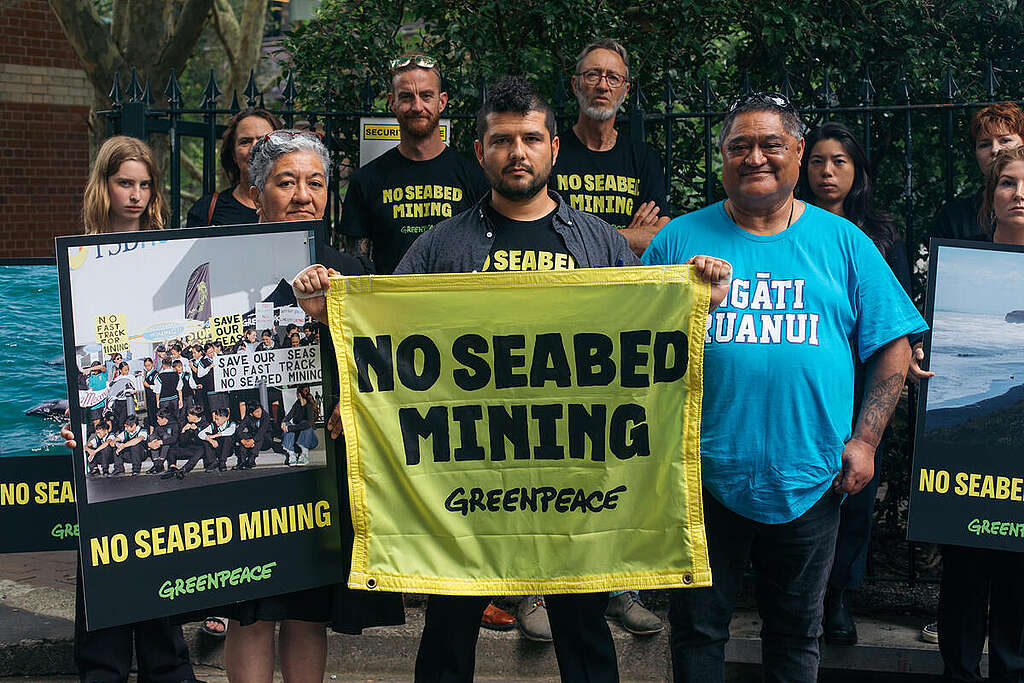
When I say this is a new form of colonial exploitation, I mean it is a new industry seeking to extract the value away from the local communities and into the pockets of the top echelons of the company. Like colonial masters of the past, they don’t care about the lives of affected Indigenous communities because they have already decided their profits matter more than the lives of the people and the ecosystems that are there.
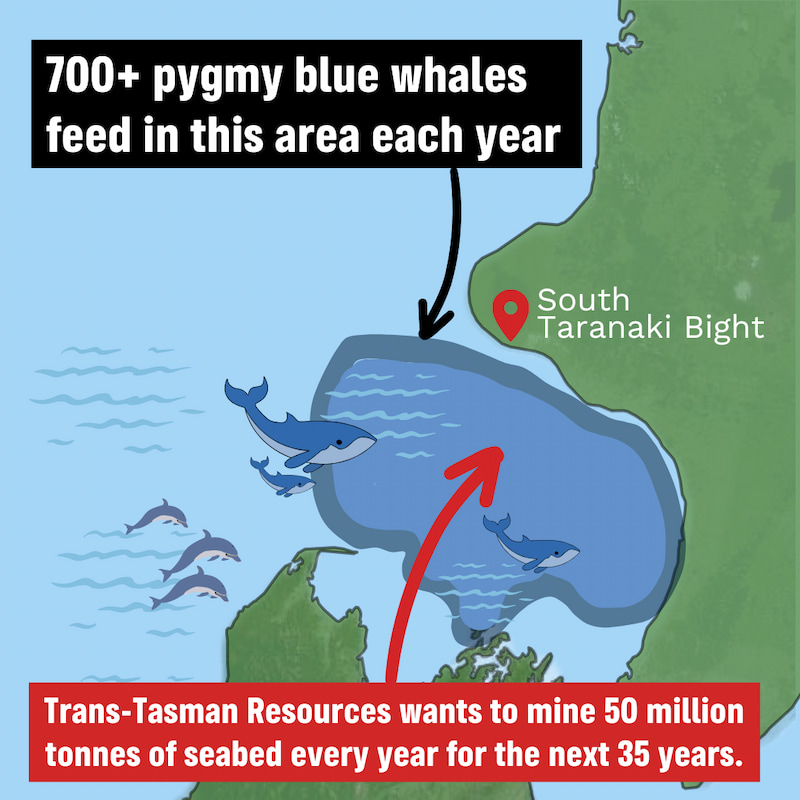
Recently the local government of Taranaki has made public their plans for the future of the region, and notably left seabed mining out of them. Further proof that this is not something desired by the local community.
We showed them what it feels like to have uninvited guests showing up to your territory and thinking they can do whatever they want. They clearly didn’t like it. I hope they reflect on this and take the chance to reconsider their decisions.
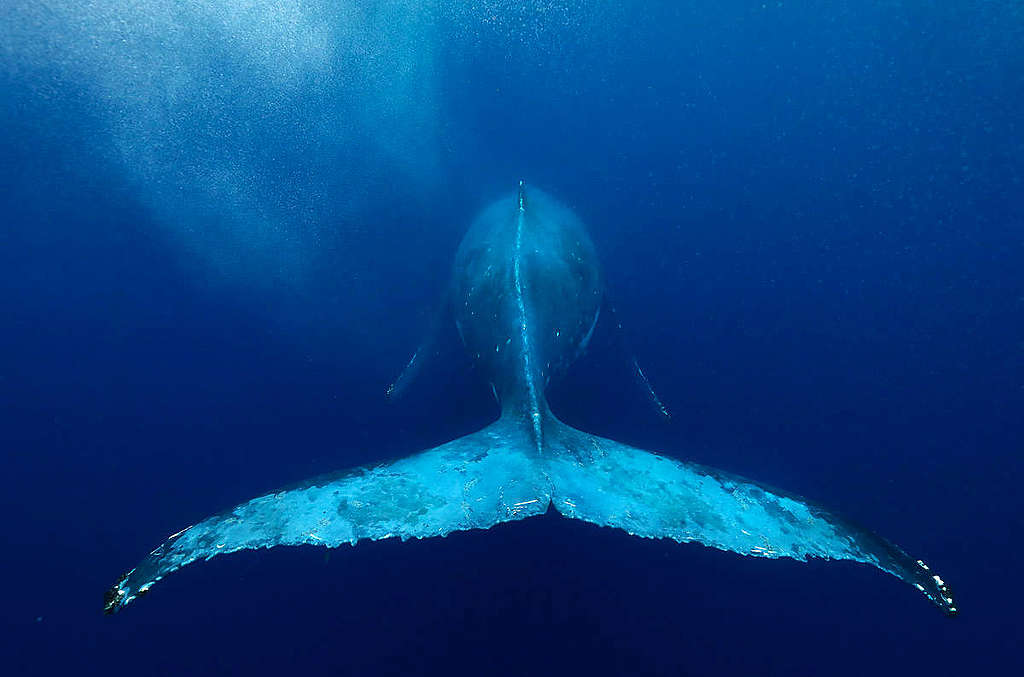
Seabed mining is a new threat to the oceans. Now is our chance to prevent the destruction before it’s too late.
Add my name
